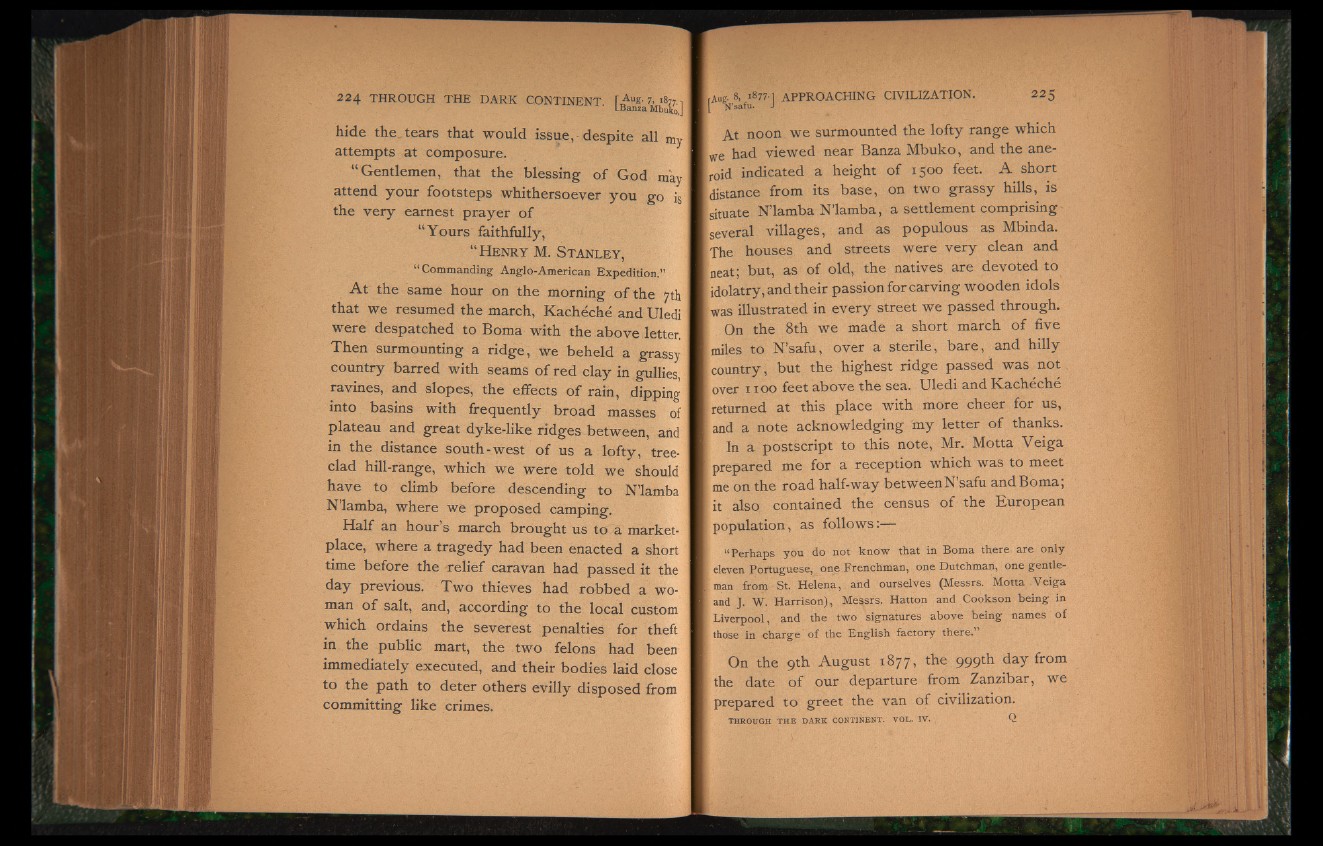
hide the. tears that would issue,-despite all my
attempts at composure.
“ Gentlemen, that the blessing of God may
attend your footsteps whithersoever you go is
the very earnest prayer of
“ Yours faithfully,
“ H e n r y M. S t a n l e y ,
“ Commanding1 Anglo-American Expedition.”
At the same hour on the morning of the 7th
that we resumed the march, Kacheche and Uledi
were despatched to Boma with the above letter.
Then surmounting a ridge, we beheld a grassy
country barred with seams of red clay in gullies,
ravines, and slopes, the effects of rain, dipping
into basins with frequently broad masses of
plateau and great dyke-like ridges between, and
in the distance south-west of us a lofty, tree-
clad hill-range, which we were told we should
have to climb before descending to N’lamba
N lamba, where we proposed camping.
Half an hour’s march brought us to a marketplace,
where a tragedy had been enacted a short
time before the relief caravan had passed it the
day previous. Two thieves had robbed a woman
of salt, and, according to the local custom
which ordains the severest penalties for theft
in the public mart, the two felons had been
immediately executed, and their bodies laid close
to the path to deter others evilly disposed from
committing like crimes.
rAug. 8. i877- I APPROACHING CIVILIZATION. 2 2 $ [ N’safu. J
At noon we surmounted the lofty range which
We had viewed near Banza Mbuko, and the aneroid
indicated a height of 1500 feet. A short
distance from its base, on two grassy hills, is
situate N’lamba N’lamba, a settlement comprising
several villages, and as populous as Mbinda.
The houses and streets were very clean and
neat; but, as of old, the natives are devoted to
idolatry, and their passion for carving wooden idols
was illustrated in every street we passed through.
On the 8th we made a short march of five
miles to N’safu, over a sterile, bare, and hilly
country, but the highest ridge passed was not
over 1100 feet above the sea. Uledi and Kacheche
returned at this place with more cheer for us,
and a note acknowledging my letter of thanks.
In a postscript to this note, Mr. Motta Veiga
prepared me for a reception which was to meet
me on the road half-way between N’safu and Boma;
it also contained the census of the European
population, as follows:—
“ Perhaps you do not know that in Boma there are only
eleven Portuguese, one .Frenchman, one Dutchman, one gentleman
from St. Helena, and ourselves (Messrs. Motta Veiga
and J. W. Harrison), Messrs, Hatton and Cookson being in
Liverpool, and the two signatures above being names of
those in charge of the English factory there.
On the 9th August 1877, the 999th day from
the date of our departure from Zanzibar, we
I prepared to greet the van of civilization.
THROUGH THE DARK CONTINENT. VOL. IV. Q